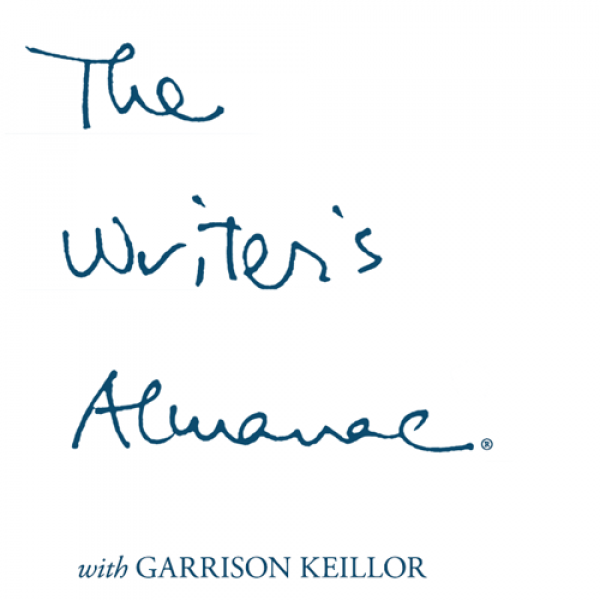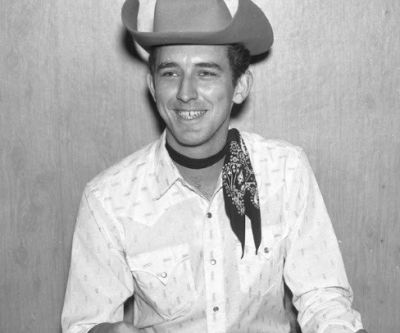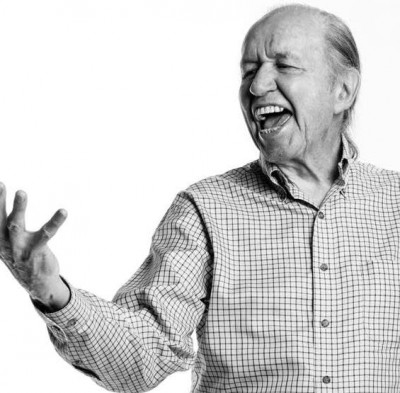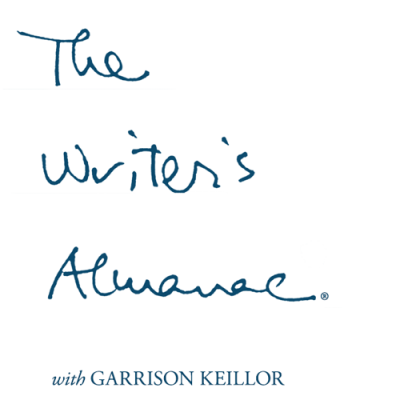December 20, 2018
Tuesday
8:00 p.m.
Minneapolis, MN
Test schedule
A live performance with Robin and Linda Williams at the Cedar Cultural Center
May 20, 2018
Sunday
3:00 p.m.
Lexington, MA
Lexington, MA
A live performance at the Saenger Theatre
April 10, 2018
Tuesday
8:00 p.m.
Tulsa, OK
Tulsa, OK
A live performance at the Brady Theater
March 17, 2018
Saturday
8:00 p.m.
Long Beach, CA
Long Beach, CA
A live performance at the Carpenter Performing Arts Center
March 15, 2018
Thursday
7:00 p.m.
Mobile, AL
Mobile, AL
A live performance at the Saenger Theatre
“This is what you shall do…” by Walt Whitman, from the preface of Leaves of Grass. Public domain. (buy now)
This is what you shall do; Love the earth and sun and the animals, despise riches, give alms to every one that asks, stand up for the stupid and crazy, devote your income and labor to others, hate tyrants, argue not concerning God, have patience and indulgence toward the people, take off your hat to nothing known or unknown or to any man or number of men, go freely with powerful uneducated persons and with the young and with the mothers of families, read these leaves in the open air every season of every year of your life, re-examine all you have been told at school or church or in any book, dismiss whatever insults your own soul, and your very flesh shall be a great poem and have the richest fluency not only in its words but in the silent lines of its lips and face and between the lashes of your eyes and in every motion and joint of your body.
Today is Independence Day. It marks the day in 1776 when the Continental Congress approved the Declaration of Independence from Great Britain. The document was approved and signed on July 2, and was formally adopted on July 4; John Adams always felt that the Second of July was America’s true birthday, and wrote to his wife, Abigail, that the date “will be celebrated, by succeeding Generations, as the great anniversary Festival.” He envisioned “Pomp and Parade … Games, Sports, Guns, Bells, Bonfires and Illuminations from one End of this Continent to the other.” He reportedly refused to appear at annual Fourth of July celebrations for the rest of his life, in protest. He died on July 4, 1826, the 50th anniversary of the Declaration’s adoption — as did Thomas Jefferson, who had written most of the document.
It was traditional in the British Colonies to celebrate the king’s birthday every summer, with bonfires, parades, and speeches. During the summer of 1776, they held mock funerals for King George instead — with bonfires, parades, and speeches. They also read the Declaration of Independence aloud as soon as it was adopted. Philadelphia held the first formal Independence Day celebration in 1777, with bells and fireworks; in 1778, General George Washington called for double rations of rum for the troops, and in 1781, Massachusetts was the first to name July 4 an official state holiday. Congress declared it a national holiday in 1870.
Jefferson turned down a request to appear at the 50th anniversary celebration in Washington, D.C.; it was the last letter he ever wrote, and in it he expressed his hope for the Declaration of Independence:
“May it be to the world, what I believe it will be … the signal of arousing men to burst the chains … and to assume the blessings and security of self-government. […] All eyes are opened, or opening, to the rights of man. … For ourselves, let the annual return of this day forever refresh our recollections of these rights, and an undiminished devotion to them.”
It’s the birthday of playwright Neil Simon (books by this author), born Marvin Neil Simon in New York City in 1927. He’s the most commercially successful playwright in Broadway history, and he’s the only playwright to have four Broadway productions running at the same time. He’s made a nice living for himself depicting the struggles — many of them matrimonial — of ordinary middle-class people, to comedic effect.
His father Irving was a garment salesman, and he had a tendency to disappear every so often, so Simon’s mother Mamie supported her family by working in department stores. In 1946, Simon’s older brother Danny, who worked in the publicity department at Warner Bros., got him a job in the studio’s mailroom; by 1948 they were working together, writing material for Jackie Gleason and Phil Silvers. His first big break came in the early 1950s when he got a job on Sid Caesar’s live television program Your Show of Shows, joining a writing staff that included Carl Reiner, Woody Allen, and Mel Brooks.
Much of Simon’s work is semi-autobiographical. The Odd Couple (1966) came about after Simon’s brother got divorced and moved in with another divorced guy. He wrote Chapter Two (1977) after the death of his wife of 20 years and his remarriage to actress Marsha Mason. The play is also about a widower who feels guilty when he falls in love again.
He wrote: “If you can go through life without ever experiencing pain, you probably haven’t been born yet. And if you’ve gone through pain and think you know exactly why, you haven’t examined all the options.”
On this date in 1802, the United States Military Academy opened at West Point, New York. A national officers’ training academy had been proposed as early as 1776 and had the strong support of Alexander Hamilton, but elite officer training was considered to be a European conceit and was rejected. Finally, in March 1802, Congress passed an act establishing a school for the Army Corps of Engineers, and President Jefferson officially opened West Point on July 4.
In the early years of the academy, there were few regulations and only two instructors, and cadets ranged in age from 10 to 37 years. It’s not surprising that many of this country’s great military leaders have passed through its doors, but the period between 1900 and 1915 produced Douglas MacArthur, Joseph Stilwell, Henry “Hap” Arnold, George S. Patton, Dwight Eisenhower, and Omar Bradley. The class of 1915 is known as “the class the stars fell on” because 36 percent of that year’s graduates eventually attained the rank of general, which is designated by one or more stars on the uniform.
Today is the birthday of Nathaniel Hawthorne (books by this author), born Nathaniel Hathorne in Salem, Massachusetts (1804). He married Sophia Peabody in 1842, and soon after their wedding, Hawthorne wrote to his sister, “We are as happy as people can be, without making themselves ridiculous, and might be even happier; but, as a matter of taste, we choose to stop short at this point.”
When he lost his job at the Salem Custom House, Sophia surprised him with money she’d put away out of her household allowance just so he could write a book. And he did: The Scarlet Letter (1850), about Hester Prynne, a young Puritan woman who bears a child out of wedlock and must wear a red letter “A” for adultery as her punishment.
Today is the day, in 1845, that Henry David Thoreau moved to a cabin on Walden Pond (books by this author). Ralph Waldo Emerson owned some land near Concord, Massachusetts, and let Thoreau build a cabin there. He stayed for two years, two months, and two days, all the while keeping a journal. He published it as a book, which he called Walden; or Life in the Woods, in 1854. In it, he wrote, “I went to the woods because I wished to live deliberately, to front only the essential facts of life, and see if I could not learn what it had to teach, and not, when I came to die, discover that I had not lived.” But he wasn’t exactly living apart from civilization, nor practicing pure self-reliance. Concord was only a mile and a half away, and he often walked into town. He worked part time as a surveyor, and his mother usually sent him back to the cabin with some home cooking.
On this day in 1855, Walt Whitman (books by this author) published a small volume of poems, which he called Leaves of Grass.
Ten years earlier, Ralph Waldo Emerson had written an essay called “The Poet,” which called for a new style of poetry that reflected the spirit of the United States. Emerson wrote: “We have yet had no genius in America, with tyrannous eye, which knew the value of our incomparable materials […] Our logrolling, our stumps and their politics, our fisheries, […] our boasts, and our repudiations, the wrath of rogues, and the pusillanimity of honest men, the northern trade, the southern planting, the western clearing, Oregon, and Texas, are yet unsung. Yet America is a poem in our eyes; its ample geography dazzles the imagination, and it will not wait long for metres.” And so Walt Whitman decided to become that genius. He wrote later: “I was simmering, simmering, simmering; Emerson brought me to a boil.”
Whitman was a printer, and so once he had the 12 poems that would make up Leaves of Grass, he did a lot of the typesetting and design for the book himself, with a gold title and gold leaves and vines coming from it, and yellow endpapers. He published 795 copies, and the poems he included are some of his most famous: “Song of Myself,” “I Sing the Body Electric,” “Faces,” “The Song of the Answerer,” and so on.
It got very mixed reviews; many critics shared the opinion of the anonymous reviewer in The National Quarterly Review, who wrote: “In no work of the same size have we ever read so much that is disgusting and repulsive.” But Emerson loved Leaves of Grass, and he sent Whitman a congratulatory letter telling him so, writing: “I greet you at the beginning of a great career.” Being the fabulous self-promoter that he was, when Whitman published a second edition a year later, with 33 poems, he included a number of positive reviews of the book, many of them were written by Whitman himself, and he also included Emerson’s letter, — it might be the first blurb in history.






